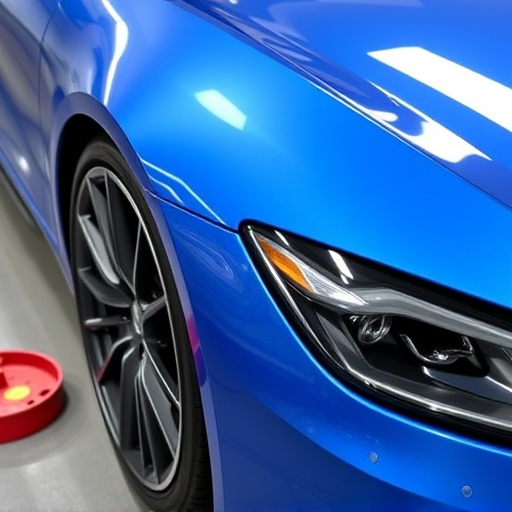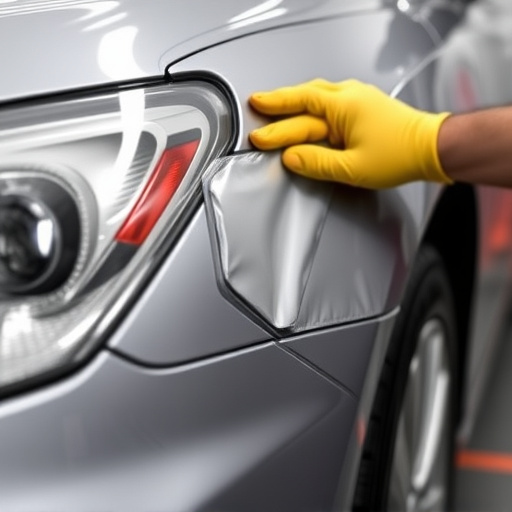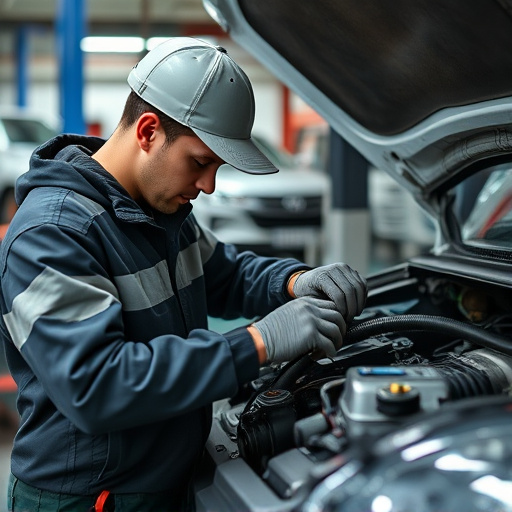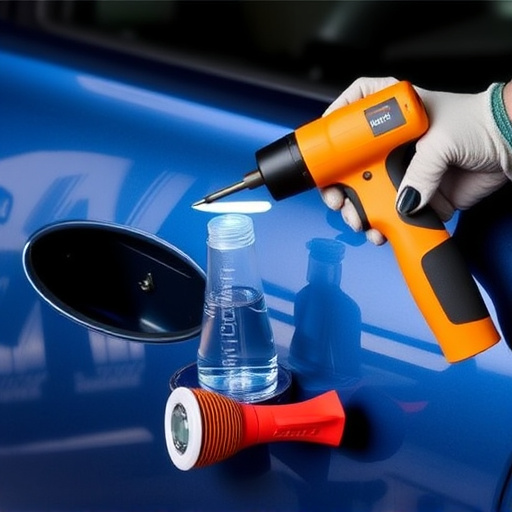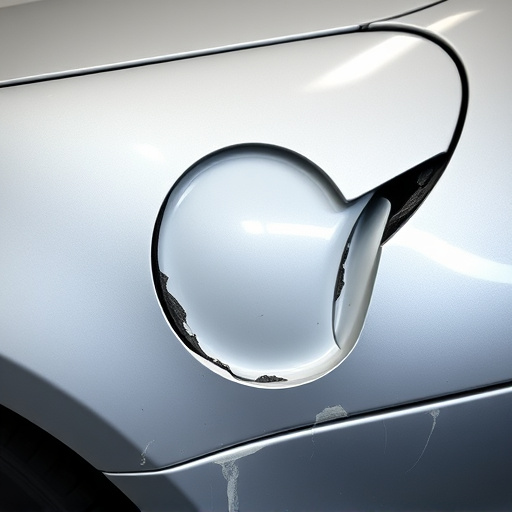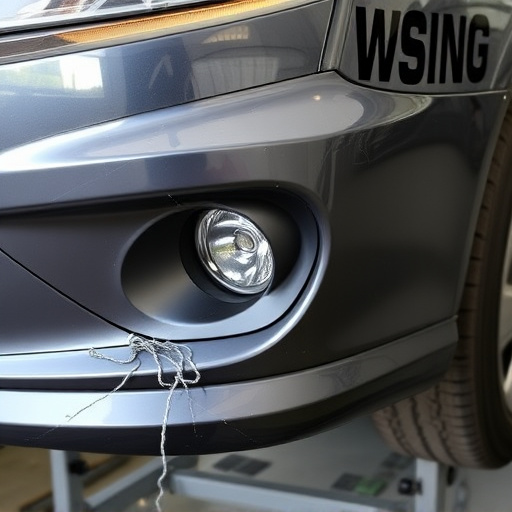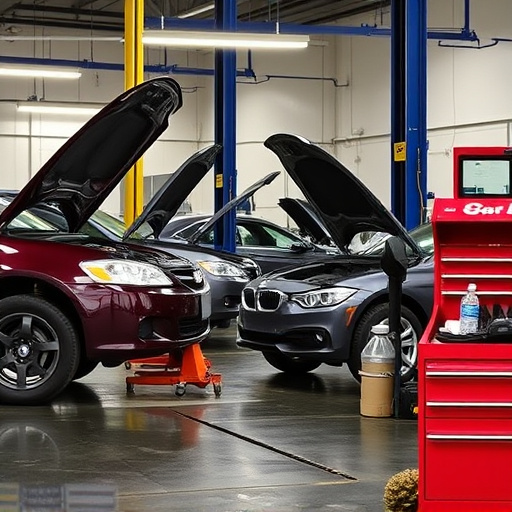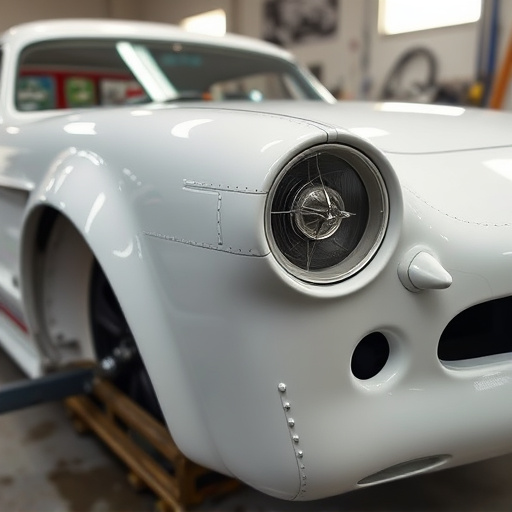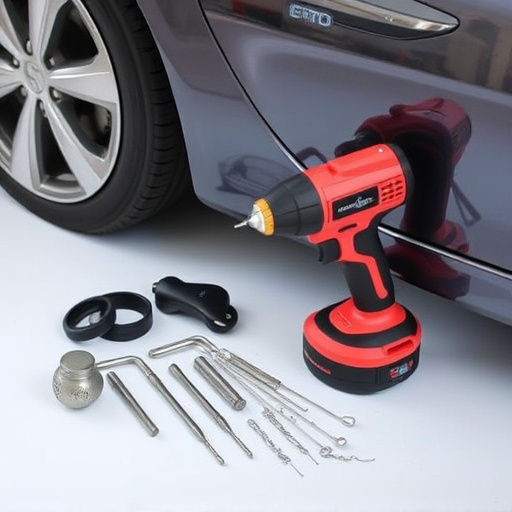Factory Tolerance Restoration is a meticulous process that fine-tunes manufacturing equipment for precise output, especially on complex assembly lines, akin to precision body shop work in vehicle collision repair. It involves systematically evaluating machines against predetermined tolerances, identifying deviations, and implementing corrective actions to maintain high product quality standards. Quality Control Checks (QCCs) are vital for successful restoration, ensuring each part meets strict specifications. Regular QCCs allow manufacturers to identify and rectify deviations, optimize techniques, enhance overall quality and efficiency, and ultimately deliver superior auto body services through precise and reliable factory tolerance restoration. Robust Quality Control (QC) measures are crucial for consistent outcomes, with clear protocols ensuring every repair adheres to precise manufacturing standards. Effective QC involves regular inspections, standardized testing, and data-driven analysis to verify dimensional accuracy, material integrity, and functional performance against established tolerances.
In the dynamic landscape of manufacturing, achieving precision and consistency in production processes is paramount. Factory Tolerance Restoration (FTR) plays a pivotal role in ensuring that products meet stringent quality standards. This article delves into the intricacies of FTR, exploring its significance and the indispensable contribution of Quality Control (QC) checks. We dissect the critical role of QC measures in restoring tolerances, offering insights on implementing effective strategies for consistent, high-quality outcomes.
- Understanding Factory Tolerance Restoration: A Brief Overview
- The Role of Quality Control Checks in Restoring Tolerances
- Implementing Effective QC Measures for Consistent Results
Understanding Factory Tolerance Restoration: A Brief Overview

Factory Tolerance Restoration is a meticulous process that involves fine-tuning and calibrating manufacturing equipment to ensure precise output. It’s a critical step in maintaining high product quality standards, especially for complex assembly lines where even minute variations can significantly impact final products. This restoration involves systematically evaluating each machine’s performance against predetermined tolerances, identifying deviations, and implementing corrective actions to bring them back within acceptable limits.
The process mirrors the meticulous work conducted in body shop services and auto repair shops, where precision is paramount. In a vehicle collision repair scenario, for instance, restoring factory tolerances ensures that components like panels, frameworks, and mechanical systems align perfectly, guaranteeing not just structural integrity but also optimal performance post-repair. This isn’t merely about achieving visual symmetry; it’s about ensuring the safety and reliability of vehicles leaving the assembly line or workshop.
The Role of Quality Control Checks in Restoring Tolerances
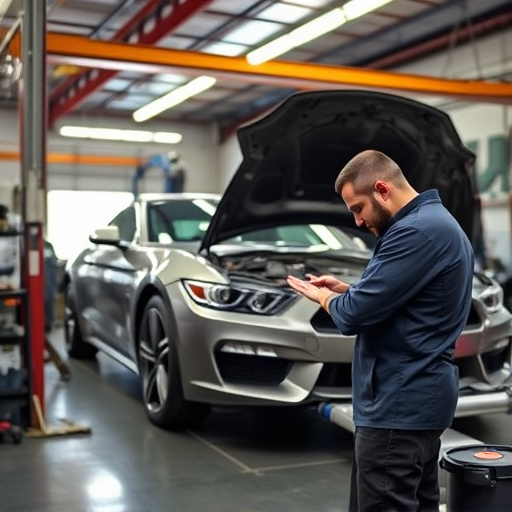
Quality Control Checks (QCCs) play a pivotal role in successful factory tolerance restoration processes. These checks ensure that each component and assembly meets stringent specifications, ensuring dimensional accuracy and functionality. By implementing rigorous QCC protocols, manufacturers can accurately identify and rectify any deviations from designed tolerances. This proactive approach is crucial for maintaining the integrity of auto collision repair and auto body services, including meticulous bumper repair procedures.
Regular QCCs during factory restoration allow for continuous improvement in production processes. Data gathered from these checks helps identify recurring issues, enabling manufacturers to refine their techniques and equipment. This not only enhances the overall quality of products like those undergoing bumper repair but also optimizes production efficiency. In essence, effective Quality Control Checks are the linchpin for achieving precision and reliability in factory tolerance restoration, ultimately delivering superior auto body services.
Implementing Effective QC Measures for Consistent Results

Implementing robust Quality Control (QC) measures is pivotal for achieving consistent outcomes during factory tolerance restoration processes. These checks ensure that each vehicle undergoing repair, whether it’s a car dent repair or intricate vehicle body repair at an auto collision center, adheres to precise manufacturing standards. By establishing clear QC protocols, manufacturers can identify and rectify deviations early in the production line, preventing substandard products from reaching customers.
Effective QC involves regular inspections, standardized testing procedures, and data-driven analysis. For instance, in the context of factory tolerance restoration, QC teams should verify dimensional accuracy, material integrity, and functional performance against established tolerances. This meticulous approach ensures that every component, from body panels to mechanical systems, meets the required specifications, ultimately bolstering the overall quality and reliability of restored vehicles.
Factory tolerance restoration is a critical process that ensures precision and consistency in manufacturing. By implementing robust quality control (QC) checks, manufacturers can achieve and maintain high standards throughout. This article has explored the essential role of QC in restoring tolerances, highlighting the impact of consistent measures on overall production quality. Through a combination of thorough understanding and strategic implementation, factories can significantly improve their efficiency and product reliability.
